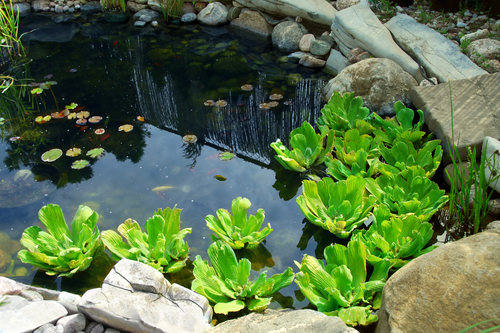Garden ponds offer tremendous value to homeowner and environment for a variety of reasons, both tangible and intangible. Here are some key aspects to consider:
Aesthetic and Landscaping Value
Garden ponds can significantly enhance the beauty and appeal of a property. They add a natural, serene element to outdoor spaces, often serving as focal points in garden design. The visual and auditory elements of water, such as reflections and gentle sounds, can create a calming atmosphere.
Ecological and Environmental Benefits
Garden ponds contribute positively to local ecosystems. They can:
- Support Wildlife: Ponds provide habitat for various species, including frogs, birds, insects, and aquatic plants. This can help promote biodiversity.
- Microclimate Regulation: Water bodies can moderate temperatures in their immediate vicinity, creating a cooler microclimate during hot periods.

Personal Enjoyment and Wellbeing
For many, garden ponds are a source of relaxation and enjoyment. They offer a space for quiet reflection, watching wildlife, and even recreational activities like koi keeping. The presence of water features has been linked to reduced stress and increased mental well-being.
Property Value
A well-maintained garden pond can increase the marketability and value of a property. Prospective buyers often see them as a desirable feature, especially if the pond is aesthetically pleasing and adds to the overall landscaping.
Educational Opportunities
Garden ponds offer a hands-on learning environment for understanding ecosystems, water cycles, and wildlife. They can be particularly beneficial for children, providing a practical way to engage with nature and science.
Water Management
While primarily for aesthetic and ecological purposes, garden ponds can also play a role in water management. They can help collect rainwater, potentially reduce runoff, and support water conservation efforts, especially in xeriscaping practices.
Considerations and Maintenance
The value of a garden pond also depends on proper planning and maintenance. Poorly designed or neglected ponds can become breeding grounds for pests, such as mosquitoes, or may suffer from water quality issues like algae blooms. Regular maintenance, including cleaning, managing plant and animal life, and ensuring water quality, is crucial to preserving the pond’s benefits.
In summary, garden ponds are of great value for their aesthetic appeal, environmental contributions, and personal enjoyment. However, their actual value can vary based on design, maintenance, and individual preferences.





